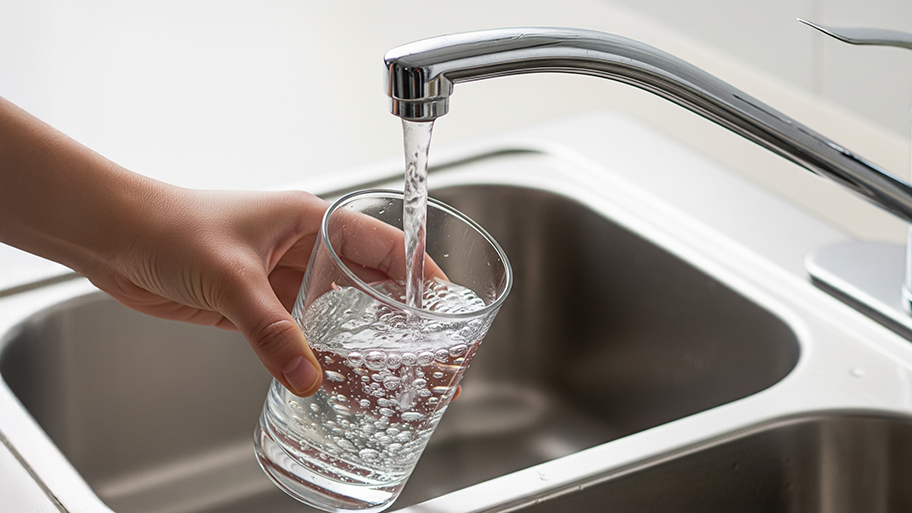
On average, a reverse osmosis water filter costs around $2,200, but there are a few variables that impact the total price. Learn about them in this guide.
Soft water solutions actually aren't too hard


Most water softener clogs don't reflect an overall system problem.
Water softener clogs come in various types.
A clog that disrupts water flow can reduce the system's efficiency and your home's water pressure.
Water softener repairs cost between $160 and $975.
The most common clogged water softener problems are straightforward to fix. The trick is determining the nature of your water softener problem. While having a leaky water softener can mean that repairs are necessary, a clogged water softener is easier to handle. Here are four common clogged water softener issues and what you can do about them.
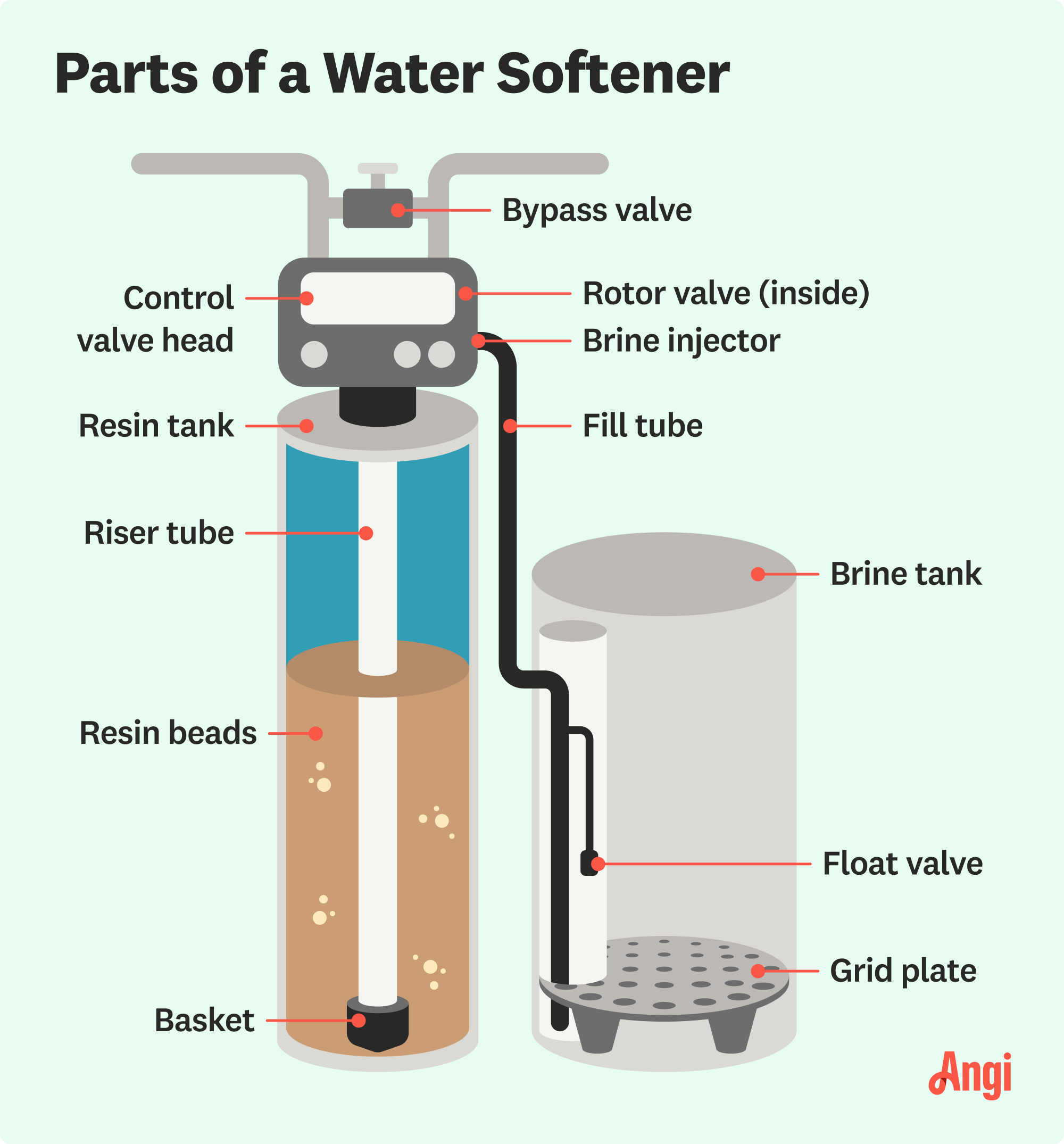
If you begin to notice spots on your silverware and glassware, despite the fact that your home has a water-softening system, the system isn't working as it should. The most common reason, other than maintenance, that homeowners engage with their water softeners is when there's a salt bridge in the brine tank that's causing reduced system functioning.
Having a salt bridge in your water softener's brine tank is a common experience that's relatively easy to fix. A salt bridge is simply a layer of solidified salt in the brine tank that's higher than the tank's water level. Because of a lack of contact with the brine water, the bridge can't dissolve, leaving behind a solid structure.
To fix the situation, scoop out any loose salt from the brine tank, break up the bridge with a broom handle or similar device, and throw out the large chunks of salt. Refill the tank with new salt to the manufacturer's specifications and restart the system.
There are a couple of tell-tale signs to suggest that your water softener's resin tank is clogged. If there’s a clog, your tap water is not receiving sufficient treatment as it passes through the system. This is because the resin tank isn't regenerating often enough or well enough. Symptoms of a clogged resin tank include lower water pressure and hard water staining.
The first step to fixing a clogged resin tank is determining why the resin is clogged. Is there a salt bridge in the brine tank, a plumbing problem restricting flow, or is the water softener not regenerating efficiently enough? After identifying the problem, thoroughly clean the resin tank or hire a water softener professional to perform the task. Hire a pro who repairs water softeners to fix the underlying issue and restart the system.
The main difference between soft water and hard water is the mineral content. Hard water has higher levels of calcium and magnesium, whereas soft water has undergone a process to remove these minerals.
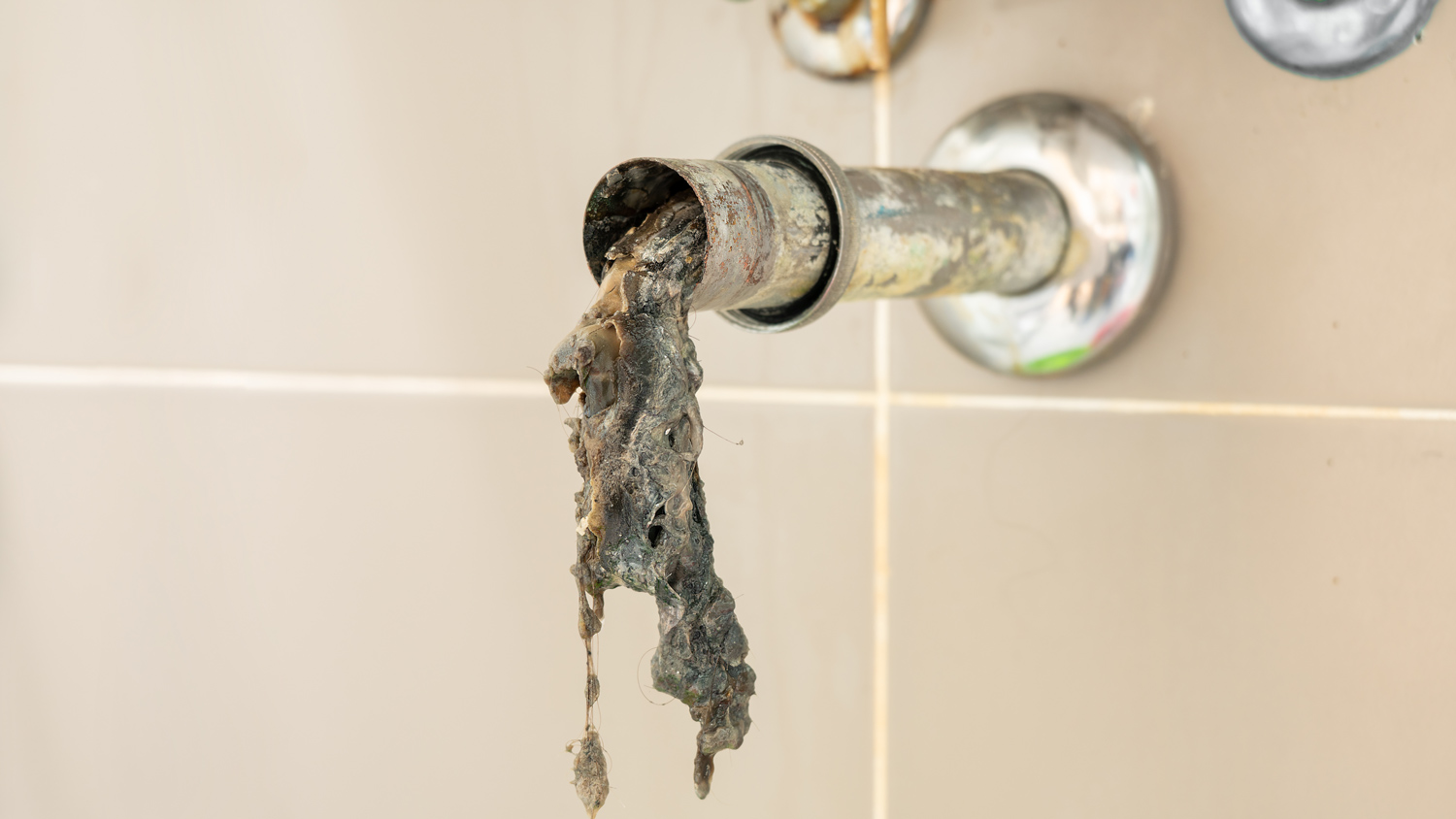
There are many parts in a water softener, most of which come into contact with water at one time or another as it passes through the appliance. Additionally, there are multiple water pipes leading to and from the system. Some of these parts have small water passages and bottlenecks, any of which can fall victim to clogging. A clog in one part of the system often appears as if the whole system is failing.
As a homeowner and DIYer, you can thoroughly clean out your water softener system, watching for instances of debris clogging any openings. You can often see obstructions when using this method. However, most homeowners in this situation call in a local water softener professional to ensure success in fixing the problem.
Water softener clogs aren't unusual, even for high-end systems, and are easy to fix. However, water softeners don't last forever, and they can occasionally break down. System problems with your water softener, such as malfunctioning parts, can look an awful lot like a clogged scenario.
While handling a salt bridge or other clog in your water softener system can be a simple DIY project, repairing the system when something fails is a job for the experts. If you suspect a problem with your system that's not as simple as a basic clog, hiring a nearby water softener expert is the best course of action. Water softener repair costs between $160 and $975 on average.
Modern water softeners are more than just simple machines. Many of them include specialized electronics that can provide error codes to clue you into what's happening inside the device. While that can be convenient for troubleshooting, it can also complicate the situation. If you discover that your apparent water softener clog requires more than a simple DIY fix, it's time to bring in the pros. Your water softener professional can diagnose and repair almost any condition your appliance finds itself in and can even discuss the eventual repair or replacement decision with you.
From average costs to expert advice, get all the answers you need to get your job done.

On average, a reverse osmosis water filter costs around $2,200, but there are a few variables that impact the total price. Learn about them in this guide.

Wondering about water treatment system costs? Learn average prices, key cost factors, and ways to save on installation and maintenance for your home.
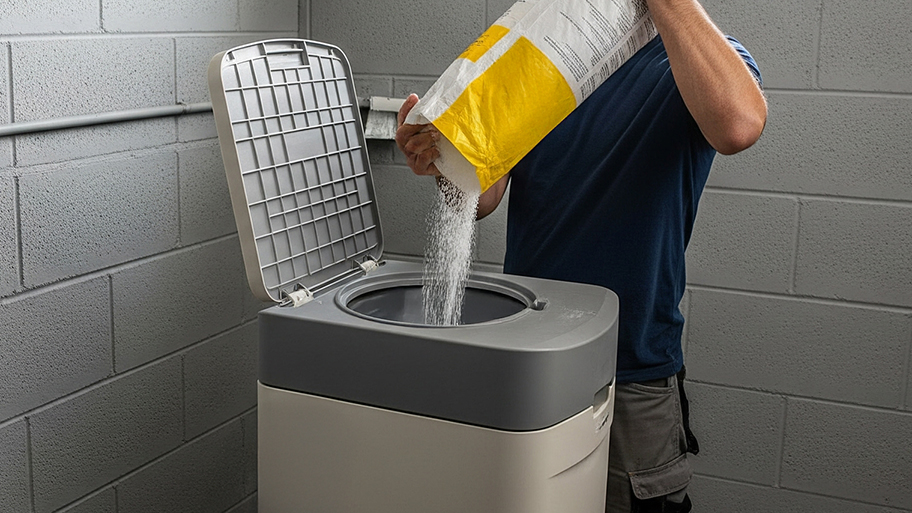
How much a water softener costs depends on your home’s size, and the system’s type and capacity. Our expert guide explores all the price factors.
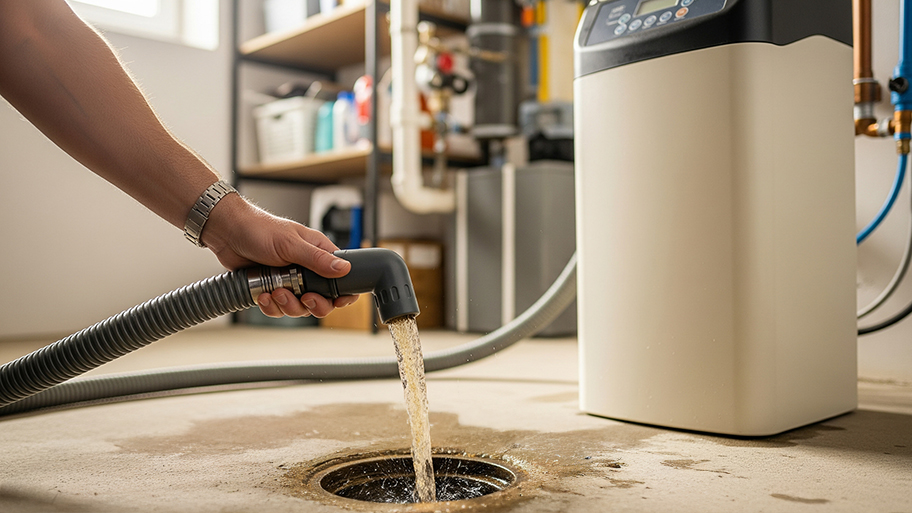
Not all states allow you to dump water softener backwash outside. Keep reading to learn where to discharge water softener backwash for your home.

Not sure if you need a water descaler or a water softener? Use this handy guide to find out which you need and why it’s more likely to get the job done.
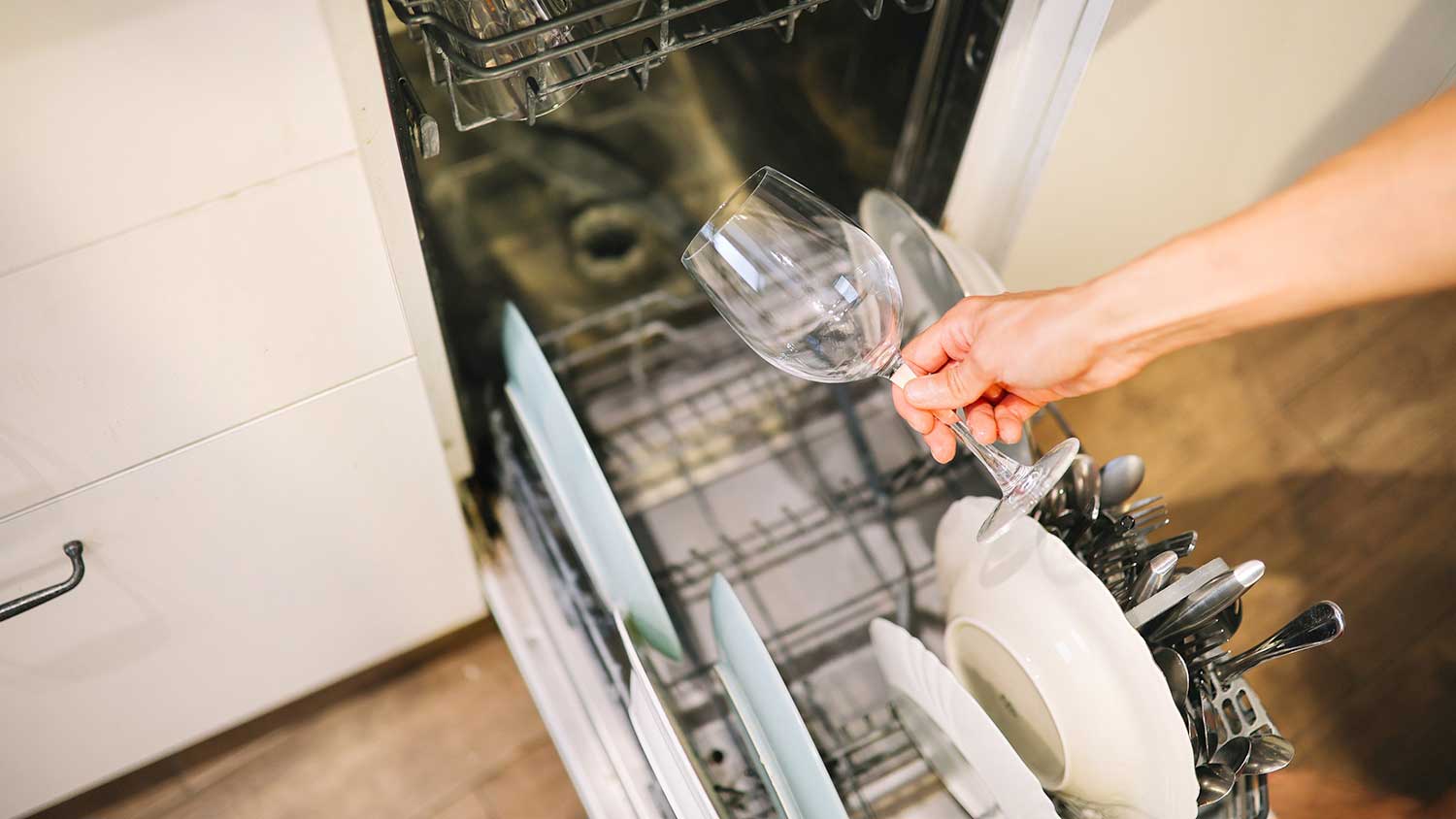
Knowing how to fix a clogged water softener will help you spot and stop a blockage so that soft, purified water always flows.